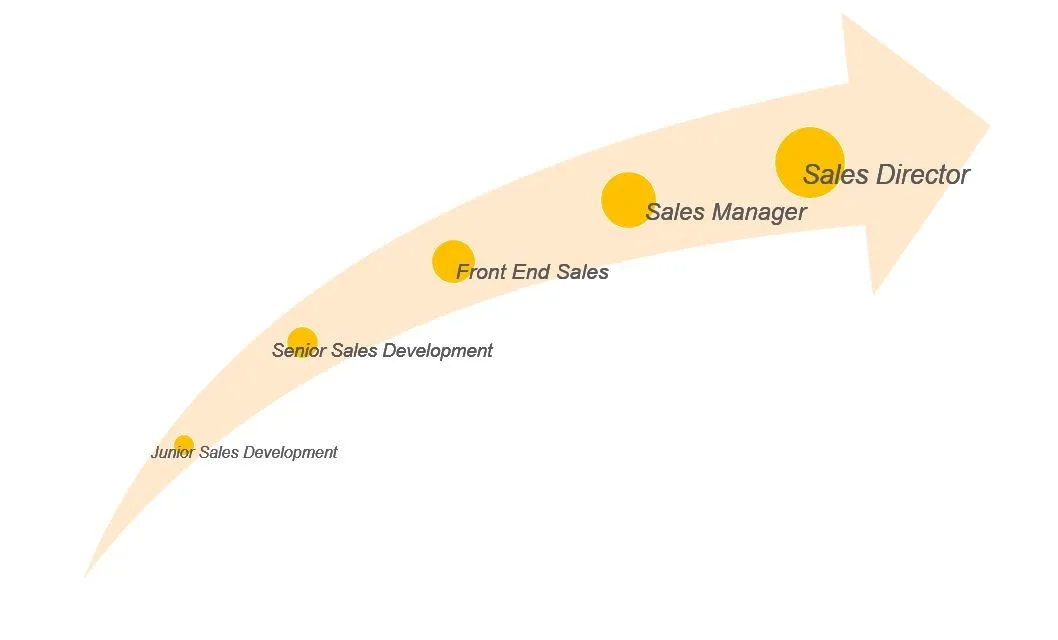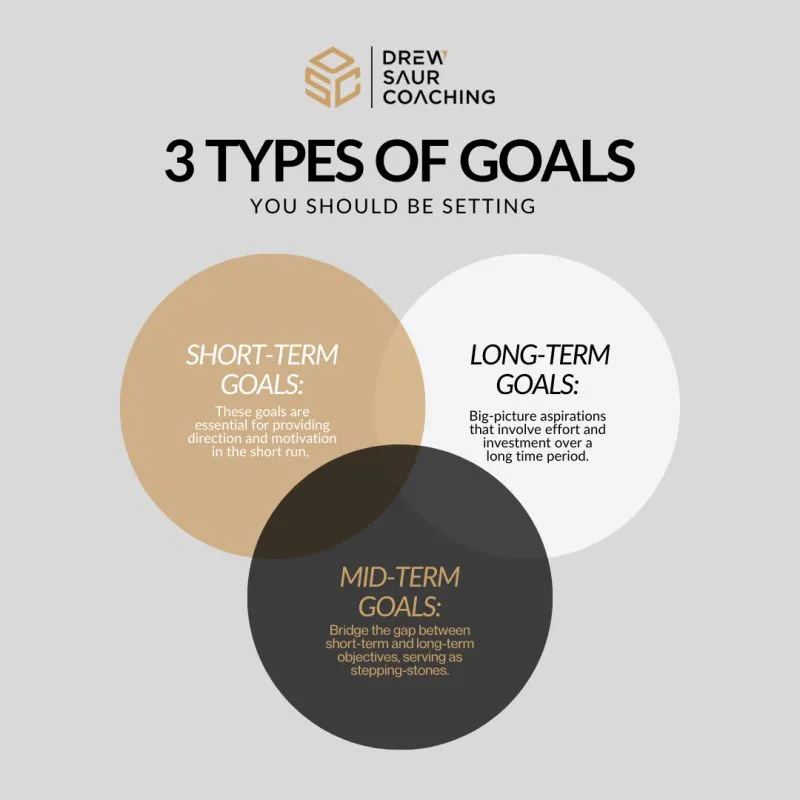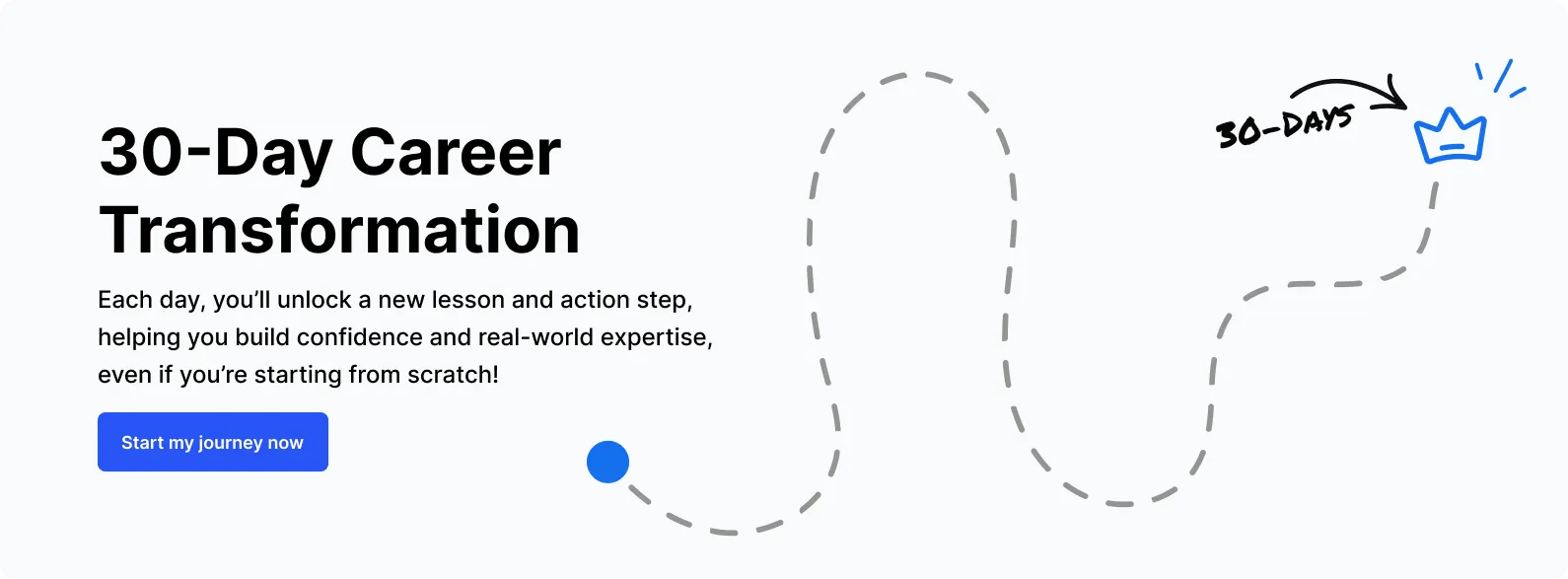5 Steps to Achieve Long-Term Career Satisfaction
Learn how to align your goals, enhance your skills, and maintain a fulfilling professional life. Perfect for anyone seeking lasting happiness and success in their career.
Table of contents

Learn how to align your goals, enhance your skills, and maintain a fulfilling professional life. Perfect for anyone seeking lasting happiness and success in their career.
Your job is great, but every morning feels like a burden! Ever had the feeling of not knowing where your life is going?
It's not just about avoiding the daily grind. It's about waking up with purpose, enjoying job security, and achieving financial stability.
Long-term satisfaction means having a career that aligns with your passions and goals. It brings benefits like increased motivation, better job performance, and a healthier work-life balance.
So, how do you achieve this satisfaction?
It all starts with defining clear, long-term career goals. Let's see what these goals look like.

Setting goals is the first step to achieving anything you want out of life, and your career is no exception.
Jennifer Sokolowsky, a journalist, knows this well:
Long-term career goals define where you want to be in the future and serve as an overall guide for the decisions you make about your career day-by-day and year-by-year.
However, you may face challenges like workplace changes, life events, and self-doubt while on your long-term career path.
For this Jennifer advises:
Your long-term goals should feel exciting and achievable, while giving you plenty of room to stretch and grow.
Unlike long-term goals, short-term goals are stepping stones. They help you achieve your big-picture dreams.
By setting thoughtful, personal framework for both long-term and short-term goals, you create a framework to guide you through your career.
NoCode Institute can help you achieve these goals with flexible, affordable learning options. Whether you're building new digital skills or transitioning into tech industry with no experience, NoCode Institute offers the support and resources you need. Boost your job market success with strategies to adapt skills, optimize resumes, network effectively, and gain practical experience.
Ready to transform your career? Follow these five simple steps to achieve long-term career satisfaction and turn your professional dreams into reality.
Michael Boggia knows a thing or two about setting goals. With experience leading teams and driving revenue globally, he’s seen firsthand how goals can transform a career.
Long-term career goals … serve as an overall guide for the decisions you make about your career day-by-day and year-by-year.

Creating a career roadmap with SMART goals is key. It’s about turning vague ambitions into clear, actionable steps.
The SMART goal-setting method is the process of moving goals from vague ambitions to specific, task-oriented action items.
Yet, these goals should be ambitious but realistic.
Your long-term goals should feel exciting and achievable, while giving you plenty of room to stretch and grow.
For example, if you are not from a tech background, learning coding in your changing workplace, in a small period of time, can be too overwhelming. But learning no-code skills to adapt and save yourself from job obsolescence, say in a 6-months cohort with the NoCode Institute, can sound enthusiastic and achievable.
Such plans ensure your goals are Specific, Measurable, Achievable, Relevant, and Time-bound.
Drew Saur, a career coach, advises on how to turn big dreams into achievable steps. After missing an executive promotion, he learned to break down his goals.
Think of your long-term career goals as the summit of a mountain. The individual steps and base camps along the way will get you there.

Drew tells how to break your goals into short steps with a few manageable yet efficient tips:
This approach makes big goals feel attainable and gives a sense of progress.

Harsh Paliwal, a leadership advisor, believes that continuous learning is the key to long-term career success.
Org structures are like a pyramid … Almost 99% of corporate employees will not be able to go beyond the halfway.
Our careers span roughly 40 years, so it's crucial to invest in learning, especially in the first half. Harsh advises:
Go for huge learning opportunities, even if you have to give up on money. Just a few years on the upper half will cover all the pay deficit with a very good interest.
Working with startups, building something from scratch, or inventing something new can be invaluable experiences.
Continuous learning ensures your skills are always up-to-date, making you more adaptable to changes in your career.
Learn strategies to stay ahead in your career, enhance your skills, and embrace lifelong learning for personal and professional growth.

Andrew Crain, Associate Manager of STEM Workforce Development at ORISE, emphasizes the power of passive networking for long-term career success.
Creating a LinkedIn profile early on … allows students to cultivate their network over time and in a fairly organized manner.
Networking unfolds over several years. Passive networking involves gradually building connections and maintaining touch points.
A minimal effort keeps you connected and informed. Andrew says.
You are slowly 'warming' your connections toward more purposeful engagement in the future.
By building a passive network, long-term job security becomes easy and keeps you relaxed while you experiment, grow, and achieve those short-term goals.
If you haven’t started now, it’s not too late. Network on LinkedIn, in your workplace, or even while you reskill and upskill yourself.
Our programs at NoCode Institute offer brilliant community building opportunities while learning new skills for the future. See the testimonials yourself.
Sanjeev Yadav’s first full-time job wasn’t satisfying. He left due to lack of fulfillment, a feeling many of his friends shared.

Job security was a major reason they hesitated to quit.
Job security. Yes. That’s what our parents want for us. That is how we grew up in our society.
Sanjeev learned that job satisfaction and job security often don’t go hand in hand.
When you follow your passion, money is never a priority. Happiness, peace, and satisfaction are.
In his experience, financial security builds over time if you pursue what you love.
I learned the importance of frugality when I quit my full-time job. Are my finances still stable? Yes. I am learning how to spend wisely.
Sanjeev emphasizes that financial security shouldn’t come at the cost of job satisfaction. Balance is key, and it involves finding work that fulfills you while also providing stability.
Here is a detailed guide on balancing career change with personal life, including setting boundaries, prioritizing tasks, and investing in self-care.
Achieving long-term career satisfaction requires careful planning and continuous learning.
Start by creating a career roadmap with SMART goals and breaking down big ambitions into smaller, manageable steps. Unlock career success with these 6 tips on leveraging support systems in reskilling programs. Maximize your potential by effectively using available resources.
NoCode Institute supports your journey to long-term career satisfaction. Our no-code learning programs align with both your passions and the modern tech oriented career goals, providing the tools you need to succeed.
Explore our NoCode Foundations Program to start building your future today. Take the first step towards a fulfilling and secure career. Join NoCode Institute today!

Looking to re-invent yourself and turn your talent into a career? Stay up to date with the latest.